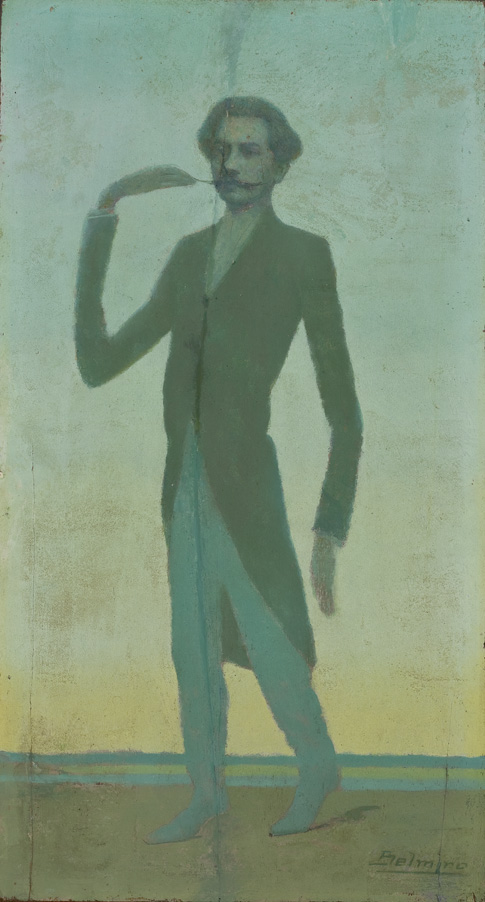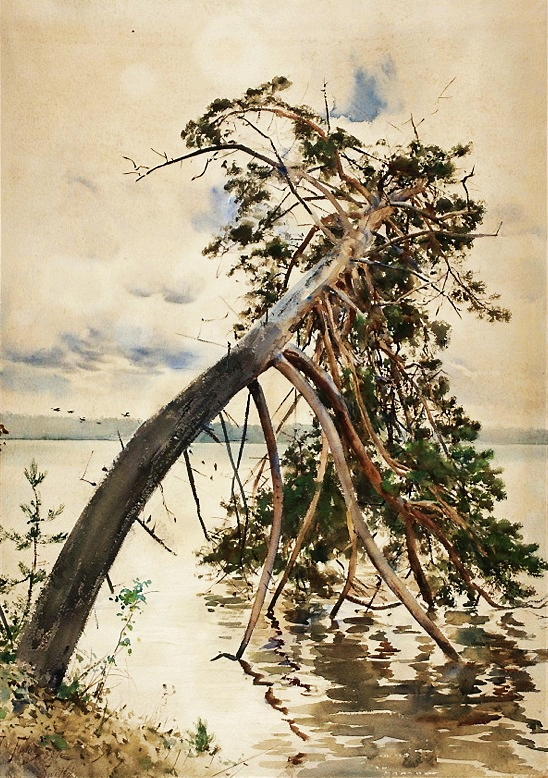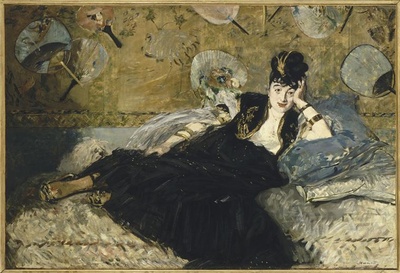|
Parnassianism
Parnassianism (or Parnassism) was a French literary style that began during the positivist period of the 19th century, occurring after romanticism and prior to symbolism. The style was influenced by the author Théophile Gautier as well as by the philosophical ideas of Arthur Schopenhauer. Origins and name The name is derived from the original Parnassian poets' journal, '' Le Parnasse contemporain'', itself named after Mount Parnassus, home of the Muses of Greek mythology. The anthology was first issued in 1866 and again in 1869 and 1876, including poems by Charles Leconte de Lisle, Théodore de Banville, Sully Prudhomme, Stéphane Mallarmé, Paul Verlaine, François Coppée, Nina de Callias, and José María de Heredia. The Parnassians were influenced by Théophile Gautier and his doctrine of " art for art's sake". As a reaction to the less-disciplined types of romantic poetry and what they considered the excessive sentimentality and undue social and political activ ... [...More Info...] [...Related Items...] OR: [Wikipedia] [Google] [Baidu] |
Symbolism (arts)
Symbolism was a late 19th-century art movement of French and Belgian origin in poetry and other arts seeking to represent absolute truths symbolically through language and metaphorical images, mainly as a reaction against naturalism and realism. In literature, the style originates with the 1857 publication of Charles Baudelaire's '' Les Fleurs du mal''. The works of Edgar Allan Poe, which Baudelaire admired greatly and translated into French, were a significant influence and the source of many stock tropes and images. The aesthetic was developed by Stéphane Mallarmé and Paul Verlaine during the 1860s and 1870s. In the 1880s, the aesthetic was articulated by a series of manifestos and attracted a generation of writers. The term "symbolist" was first applied by the critic Jean Moréas, who invented the term to distinguish the Symbolists from the related Decadents of literature and of art. Etymology The term ''symbolism'' is derived from the word "symbol" which derives from ... [...More Info...] [...Related Items...] OR: [Wikipedia] [Google] [Baidu] |
Alexandru Macedonski
Alexandru Macedonski (; also rendered as Al. A. Macedonski, Macedonschi or Macedonsky; 14 March 1854 – 24 November 1920) was a Romanian poet, novelist, dramatist and literary critic, known especially for having promoted French Symbolism in his native country, and for leading the Romanian Symbolist movement during its early decades. A forerunner of local modernist literature, he is the first local author to have used free verse, and claimed by some to have been the first in modern European literature. Within the framework of Romanian literature, Macedonski is seen by critics as second only to national poet Mihai Eminescu; as leader of a cosmopolitan and aestheticist trend formed around his ''Literatorul'' journal, he was diametrically opposed to the inward-looking traditionalism of Eminescu and his school. Debuting as a Neoromantic in the Wallachian tradition, Macedonski went through the Realist- Naturalist stage deemed "social poetry", while progressively adapting his ... [...More Info...] [...Related Items...] OR: [Wikipedia] [Google] [Baidu] |
Alberto De Oliveira
Antônio Mariano de Oliveira (April 28, 1857 – January 19, 1937) was a Brazilian poet, pharmacist and professor. He is better known by his pen name Alberto de Oliveira. Alongside Olavo Bilac and Raimundo Correia Raimundo da Mota de Azevedo Correia (May 13, 1859 – September 13, 1911) was a Brazilian Parnassian poet, judge and magistrate. Alongside Alberto de Oliveira and Olavo Bilac, he was a member of the "Parnassian Triad". He founded and occupied th ..., he comprised the Brazilian " Parnassian Triad". He founded and occupied the 8th chair of the Brazilian Academy of Letters from 1897 until his death in 1937. References External links Jornal de Poesia bio (In Portuguese) [...More Info...] [...Related Items...] OR: [Wikipedia] [Google] [Baidu] |
French Literature
French literature () generally speaking, is literature written in the French language, particularly by citizens of France; it may also refer to literature written by people living in France who speak traditional languages of France other than French. Literature written in the French language, by citizens of other nations such as Belgium, Switzerland, Canada, Senegal, Tunisia, Algeria, Morocco, etc. is referred to as Francophone literature. France itself ranks first on the list of Nobel Prizes in literature by country. For centuries, French literature has been an object of national pride for French people, and it has been one of the most influential components of the literature of Europe. One of the first known examples of French literature is the Song of Roland, the first major work in a series of poems known as, "chansons de geste". The French language is a Romance language derived from Latin and heavily influenced principally by Celtic and Frankish. Beginning in the ... [...More Info...] [...Related Items...] OR: [Wikipedia] [Google] [Baidu] |
Sully Prudhomme
René François Armand "Sully" Prudhomme (; 16 March 1839 – 6 September 1907) was a French poet and essayist. He was the first winner of the 1901 Nobel Prize in Literature, Nobel Prize in Literature in 1901. Born in Paris, Prudhomme originally studied to be an engineer, but turned to philosophy and later to poetry; he declared it as his intention to create scientific poetry for modern times. In character sincere and melancholic, he was linked to the Parnassianism, Parnassus school, although, at the same time, his work displays characteristics of its own. Early life Prudhomme was born to a French shopkeeper. Prudhomme attended the Lycée Condorcet, Lycée Bonaparte, but eye trouble interrupted his studies. He worked for a while in the Le Creusot, Creusot region for the Schneider Electric, Schneider steel foundry, and then began studying law in a notary's office. The favourable reception of his early poems by the ''Conférence La Bruyère'' (a student society) encouraged him to ... [...More Info...] [...Related Items...] OR: [Wikipedia] [Google] [Baidu] |
Théophile Gautier
Pierre Jules Théophile Gautier ( , ; 30 August 1811 – 23 October 1872) was a French poet, dramatist, novelist, journalist, and art and literary critic. While an ardent defender of Romanticism, Gautier's work is difficult to classify and remains a point of reference for many subsequent literary traditions such as Parnassianism, Symbolism, Decadence and Modernism. He was widely esteemed by writers as disparate as Balzac, Baudelaire, the Goncourt brothers, Flaubert, Pound, Eliot, James, Proust and Wilde. Life and times Gautier was born on 30 August 1811 in Tarbes, capital of Hautes-Pyrénées département (southwestern France). His father was Jean-Pierre Gautier,See "Cimetières de France et d'ailleurs – La descendance de Théophile Gautier", landrucimetieres.fr/ref> a fairly cultured minor government official, and his mother was Antoinette-Adelaïde Cocard. The family moved to Paris in 1814, taking up residence in the ancient Marais district. Gautier's education co ... [...More Info...] [...Related Items...] OR: [Wikipedia] [Google] [Baidu] |
Olavo Bilac
Olavo Brás Martins dos Guimarães Bilac (16 December 1865 – 28 December 1918), known simply as Olavo Bilac (), was a Brazilian Parnassian poet, journalist and translator. Alongside Alberto de Oliveira and Raimundo Correia, he was a member of the "Parnassian Triad". He was elected the "Prince of Brazilian Poets" in 1907 by the magazine '' Fon-Fon''. He wrote the lyrics of the Brazilian Flag Anthem. He founded and occupied the 15th chair of the Brazilian Academy of Letters from 1897 until his death in 1918. He is also the patron of the military service in Brazil due to his campaigns in favor of conscription. Life Bilac was born in Rio de Janeiro to Brás Martins dos Guimarães Bilac and Delfina Belmira Gomes de Paula. As a young man, he was a brilliant student, enrolling in the school of medicine at the Federal University of Rio de Janeiro at the age of 15. He began studying medicine, but did not finish the course. He also tried to study law at the Faculdade de Direito da U ... [...More Info...] [...Related Items...] OR: [Wikipedia] [Google] [Baidu] |
Florbela Espanca
Florbela Espanca (; born , ) was a Portuguese poet. She is known for her passionate and feminist poetry. Fernando Pessoa later said she was his "twin soul". Early life Born Flor Bela d'Alma da Conceição on 8 December 1894 in Vila Viçosa, Portugal, Espanca was the daughter of Antónia da Conceição Lobo who worked as a housemaid for Espanca's father, João Maria Espanca, a photographer and businessman. Her father's wife, Mariana do Carmo Inglesa Espanca, who was unable to have her own children, agreed for Espanca to live in their home, where she was raised from birth by both her father's wife and her biological mother, who was 15 years old when Espanca was born. Since her parents weren't married, when Espanca was baptized on 20 June 1895, she was christened as Flor Bela Lobo, the daughter of Antónia Lobo and an unknown father. Her father, whom Espanca referred to in a poem as "dear Daddy of my soul", officially claimed paternity in 1949, 19 years after Espanca's death. Es ... [...More Info...] [...Related Items...] OR: [Wikipedia] [Google] [Baidu] |
Antoni Lange
Antoni Lange (1863 – 17 March 1929) was a Polish poet, philosopher, polyglot (15 languages), writer, novelist, science-writer, reporter and translator. A representative of Polish Parnassianism and symbolism, he is also regarded as belonging to the Decadent movement. He was an expert on Romanticism, French literature and a popularizer of Eastern cultures. His most popular novel is '' Miranda''. He translated English, French, Hungarian, Italian, Spanish, Indian, American, Serbian, Egyptian and Oriental writers into Polish and Polish poets into French and English. He was also one of the most original poets of the Young Poland movement. His work is often compared to Stéphane Mallarmé and Charles Marie René Leconte de Lisle. Lange was an uncle of the poet Bolesław Leśmian. Life Lange was born in Warsaw into the patriotic Jewish family of Henryk Lange (1815–1884) and Zofia ''née'' Eisenbaum (1832–1897). His father took part in the November Uprising against the R ... [...More Info...] [...Related Items...] OR: [Wikipedia] [Google] [Baidu] |
Art For Art's Sake
Art for art's sake—the usual English rendering of ''l'art pour l'art'' (), a French slogan from the latter part of the 19th century—is a phrase that expresses the philosophy that the intrinsic value of art, and the only 'true' art, is divorced from any didactic, moral, political, or utilitarian function.Art for art's sake (revised ed.). ''''. 9992015. Such works are sometimes described as '' autotelic'' (from Greek: ''autoteles'', 'complete in itself'), a concept that has been expanded to embrace "inner-directe ... [...More Info...] [...Related Items...] OR: [Wikipedia] [Google] [Baidu] |
Nina De Callias
Anne-Marie Gaillard (12 July 1843 – 22 July 1884, in a clinic at Vanves), known as Nina de Villard de Callias, Nina de Callias or Nina de Villard, was a French composer, pianist, writer, and salon hostess. The daughter of a rich Lyon lawyer, after her marriage to Hector de Callias (comte de Callias, a writer and journalist on ''Le Figaro'') she hosted one of the most prominent literary and artistic salons of Paris. She was married to de Callias from 1864 to 1868, and had a decade-long love affair (1867-1877) with Charles Cros, whom she inspired to paint ''Coffret de santal''. She is also the ''Dame aux éventails'' by Édouard Manet. Guests who attended her salons included Hector Berlioz, Edgar Degas, Anatole France, Augusta Holmes, Stéphane Mallarme, Manet, Arthur Rimbaud, and Richard Wagner, among others. By 1869 she was hosting young poets in search of new forms of expression, known collectively as the Parnassians. She composed works for piano and voice, and contributed t ... [...More Info...] [...Related Items...] OR: [Wikipedia] [Google] [Baidu] |
Le Parnasse Contemporain
Le Parnasse contemporain ("The Contemporary Parnassus", e.g., the contemporary poetry scene) is composed of three volumes of poetry collections, published in 1866, 1871 and 1876 by the editor Alphonse Lemerre, which included a hundred French poets, such as Leconte de Lisle, Théodore de Banville, Heredia, Gautier, Catulle Mendès, Baudelaire, Sully Prudhomme, Mallarmé, François Coppée, Charles Cros, Nina de Callias, Léon Dierx, Louis Ménard, Verlaine, Villiers de L'Isle-Adam and Anatole France. The mid/late 19th century French literary movement Parnassianism took its name from the poetry collection. The first volume contained ''les Épaves'' and ''Nouvelles Fleurs du mal'' by Baudelaire, and early Mallarmé and Verlaine, avant-garde poets of the time. No poem by Arthur Rimbaud Jean Nicolas Arthur Rimbaud (, ; 20 October 1854 – 10 November 1891) was a French poet known for his transgressive and surreal themes and for his influence on modern literature and art ... [...More Info...] [...Related Items...] OR: [Wikipedia] [Google] [Baidu] |






_-_Photo_Calypolense_de_João_Maria_Espanca.png)

